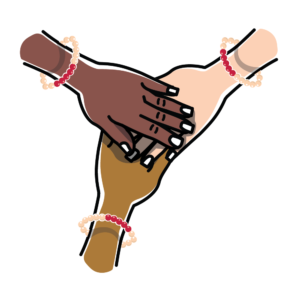
If you follow Period! a little, you know that every year we pay attention to MH Day. Ever since its very first edition on May 28, 2014. Which is also the year that Period! went online. On April 1. But that’s another menstruation story. A lot has happened since then.
What has improved?
Well, ‘menstruation’ is definitely discussed more often. If only that was the case in 2014! Back then, it was buried under a layer of silence. We at Period! still had to explain why this was a topic of conversation. And themes such as menstrual shame, menstrual poverty and lack of knowledge seemed to be reserved for developing areas. Currently, that’s not the case anymore. When it comes to menstruation, now there’s plenty of dialogue. As well as a huge selection of information. Whether you’re looking for a book, podcast, film, song or educational material.
What still needs to improve?
Well, you still don’t get any bonus points for your menstruation. Regardless of which country you live in. Menstrual products still aren’t available everywhere and for everyone. In many places, there’s a lack of sanitary facilities with sufficient privacy and/or with access to clean and safe water. In certain areas, you still have to adhere to special cleanliness rules. For example, when on your period you aren’t allowed to cook, enter a prayer room, cross a certain bridge (and so on). Menstruation is still an uncomfortable topic of conversation. At home. At school. Or at work. And even with a healthcare provider or doctor.
Girls and women still continue to suffer from very serious menstrual complaints because they think that ‘it’s just a part of it’. Or they don’t recognise them as such, due to a lack of information about what’s normal and what isn’t. There’s still a lack of data. Why do so many girls/women experience menstrual complaints? What influence does the menstrual cycle have on all kinds of other conditions, such as migraine? Does it matter in medical examinations – for example by a cardiologist – what phase of the cycle you are in?
What should you know about MH Day?
In 2014, the very first edition of Menstrual Hygiene Day (MH Day) was held, an initiative of Wash United. Initially, this awareness day focused on development areas. Because if you ensure that girls and women have access to healthy menstrual products and knowledge about their cycle, then the entire society benefits.
MH Day has since grown into a global movement that’s been followed worldwide, although sometimes under a different name. The term ‘hygiene’ has been criticised for being stigmatising. That’s why MH Day is now also called Menstrual Health Day, World Menstruation Day or even Menstruation May.

What can you do on or around MH Day?
• Share your vision and help improve knowledge: use social media to share information about menstrual health and the importance of breaking taboos. Use the hashtag Together for a #PeriodFriendlyWorld.
• Donate: support organisations that are committed to menstrual education and combating period poverty.
• Organise (or attend to) a local event: look for local gatherings or events in your area that focus on menstrual awareness.
Need some inspiration? Visit menstrualhygieneday.org
Also read:
Together for a #PeriodFriendlyWorld
#MHDay2023: yep, still necessary
MH Day 2022: #WeAreComitted
#MenstruationMatters: not just on MH Day
Period! is an independent, online magazine about all aspects of menstruation. Period! is not intended as a substitute for medical advice. If you’re suffering from medical complaints, always visit your doctor or GP. Editorial articles can contain affiliate links. Sponsored collaborations can be found in the category Spotlight. Do you have any questions? Check our contact page.






